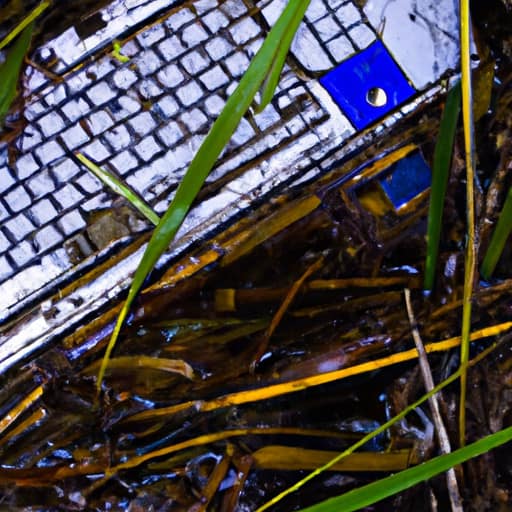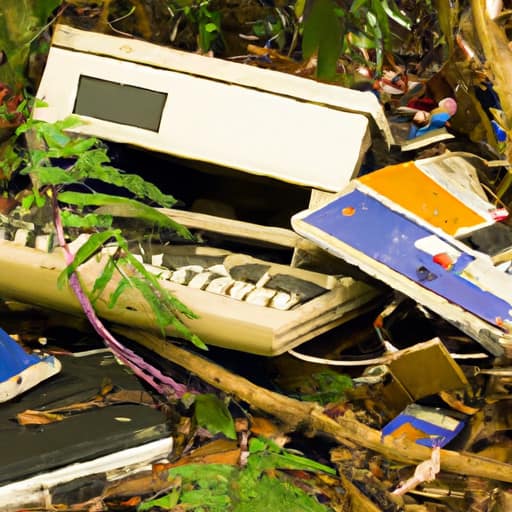If you’ve been wondering how Australia handles its e-waste, look no further. This article provides a glimpse into e-waste management practices in the country. From skip bins to skip bin hire, Perth residents have several options for proper disposal. With a focus on efficient and responsible rubbish removal, Australia is taking steps to ensure the safe handling and recycling of electronic waste. So, if you’re curious about e-waste management Down Under, read on for an insightful look into the subject.
E-Waste management in Australia

Introduction to E-Waste
E-Waste, short for electronic waste, refers to discarded or obsolete electronic devices such as computers, smartphones, televisions, and household appliances. With the rapid advancement of technology and shorter product lifecycles, e-waste has become a significant environmental concern globally. In Australia, the management and disposal of e-waste have gained attention in recent years due to its adverse effects on the environment and public health. Proper e-waste management is crucial to minimize these negative impacts and promote sustainability.
Growth of E-Waste in Australia
Australia has witnessed a significant increase in the generation of e-waste in recent decades. As technology continues to evolve and consumer demand for electronic devices rises, the disposal of end-of-life electronics has posed mounting challenges. According to a report by the Australian Bureau of Statistics, approximately 485,000 tonnes of e-waste were generated in 2016-2017, with an annual growth rate of around 8%. This exponential growth highlights the urgent need for effective e-waste management strategies.
Effects of E-Waste on the Environment
Improper handling and disposal of e-waste can have severe repercussions on the environment. Electronics contain various hazardous substances, including lead, mercury, cadmium, and brominated flame retardants, which can contaminate soil, waterways, and air if not disposed of correctly. Additionally, releasing these toxins into the environment can pose a significant health risk to humans and wildlife. E-waste also contributes to resource depletion as valuable components and materials are lost when not recycled.

Legislation and Regulatory Frameworks
To address the growing concern of e-waste, Australia has implemented legislation and regulatory frameworks at both the federal and state levels. The key legislation is the Product Stewardship Act 2011, which aims to establish a producer responsibility scheme for e-waste disposal. Under this act, designated goods and services must have an appropriate product stewardship arrangement in place. The National Television and Computer Recycling Scheme (NTCRS), established in 2012, is one such arrangement that ensures the effective recycling of e-waste.
Responsibilities of Producers and Consumers
The Product Stewardship Act places the responsibility of e-waste management on both producers and consumers. Manufacturers, importers, and retailers are required to take responsibility for the safe disposal and recycling of the electronic products they distribute. This includes financing and implementing e-waste recycling programs. On the other hand, consumers are encouraged to recycle their old electronics through designated collection points or recycling initiatives. By actively participating in e-waste management, producers and consumers can collectively reduce the environmental impact of electronic waste.
E-Waste Recycling Processes
E-waste recycling involves a series of processes to recover valuable materials and safely dispose of hazardous substances. Upon collection, the e-waste undergoes sorting and dismantling, where the different components are separated for further processing. Valuable materials like metals and plastics are then sent for recycling, while hazardous substances are treated and disposed of appropriately. The recycling process helps conserve resources by extracting valuable materials for reuse while minimizing the impact on the environment.
E-Waste Collection and Transport
Efficient collection and transport systems are crucial for the successful management of e-waste. In Australia, various collection methods are employed, including drop-off points at recycling centers, permanent e-waste collection facilities, and periodic collection events. Additionally, skip bins and skip bin hire services are available to conveniently dispose of large quantities of e-waste. The collected e-waste is then transported to recycling facilities where it undergoes further processing.
E-Waste Recycling Facilities
E-waste recycling facilities play a vital role in the proper management and disposal of electronic waste. These specialized facilities utilize advanced technologies and processes to ensure the safe and efficient recycling of e-waste. With the help of skilled personnel and state-of-the-art machinery, the facilities are able to extract valuable materials, such as precious metals, rare earth elements, and plastics, from the discarded electronics. These materials are then recycled and used in the manufacturing of new products, reducing the reliance on virgin resources.
Challenges and Issues in E-Waste Management
Despite the efforts made in e-waste management, there are still challenges and issues that need to be addressed. One major challenge is the lack of awareness among the general public about the importance of recycling e-waste. Many individuals still dispose of their electronic devices in regular waste bins, leading to the improper handling and potential release of hazardous substances. Limited access to collection points and recycling facilities, especially in rural and remote areas, also poses a challenge in ensuring widespread e-waste recycling. Furthermore, the high costs associated with effective e-waste management remain a hindrance.
Future Outlook and Solutions
To overcome the challenges and improve e-waste management in Australia, several measures can be taken. Increasing awareness through education campaigns and community outreach programs can encourage individuals to responsibly dispose of their e-waste. Expanding the network of collection points and recycling facilities, particularly in underserved areas, can improve the accessibility of e-waste recycling services. Collaboration between government bodies, manufacturers, recycling facilities, and the public is essential for the development and implementation of effective solutions. Additionally, further research and development to enhance e-waste recycling technologies will contribute to more sustainable practices and resource recovery.
In conclusion, e-waste management in Australia plays a critical role in mitigating the environmental impact of electronic waste. As the generation of e-waste continues to grow, it is essential to prioritize proper handling, recycling, and disposal of electronic devices. Through legislation, producer and consumer responsibility, effective recycling processes, and improved collection and transport systems, Australia can pave the way toward a more sustainable and environmentally conscious approach to e-waste management. With concerted efforts and ongoing advancements in technology and awareness, the future outlook for e-waste management in Australia holds promise for a greener and healthier environment.
Wizz Binz offers skip bin hire in south of the river suburbs like Fremantle.


